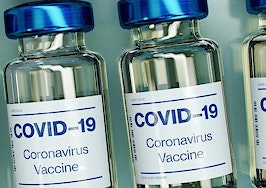Super Bowl LV will look a lot different than Super Bowls gone by. Attendance will be limited to just 22,000 fans (30 percent of the stadium’s capacity), the first several rows of seats will be blocked off from fans, and the halftime show featuring The Weeknd will largely be performed from the stadium’s stands.
Not surprisingly, the short-term rental scene in the Super Bowl’s host city of Tampa will also look a little different this year. So far, short-term rental bookings are up 35 percent in Tampa from the same weekend in 2020, but that increase in demand between a non-Super Bowl and a Super Bowl year is the smallest increase seen since short-term rental data company AirDNA started tracking this data in 2014.

The Super Bowl’s impact on short-term rental demand in a given market compared to the same weekend the previous year
In contrast, short-term rental bookings increased nearly 50 percent in Miami during the 2020 Super Bowl compared to the previous year; they increased 263 percent year over year during the 2019 Super Bowl in Atlanta; and surged 587 percent year over year during the 2018 Super Bowl in Minneapolis.
The number of short-term rentals made available in Tampa during the weekend of the NFL 2021 game is also much less than those that have come available during previous Super Bowls, reflecting the nation’s overall dwindling housing inventory and increased efforts to stay at home during the ongoing coronavirus pandemic.

Jamie Lane | Credit: LinkedIn
“Reduced capacity for the Super Bowl this year will reduce the need for accommodations,” Jamie Lane, vice president of research at AirDNA, told Inman in an email. “Area hotels are usually booked well in advance for the NFL’s teams, personnel, sponsors, etc. This year, tickets are also being provided to vaccinated healthcare workers. Capacity will only be at 30 percent, which will severely reduce the demand that would have otherwise rented short-term rentals in the market.”
In 2021, the number of available short-term rental units increased in Tampa by 14.7 percent from the previous year, whereas the number of available units increased by 28.7 percent year over year in Miami in 2020. During the 2019 Super Bowl, the number of units available increased 162.8 percent year over year in Atlanta; and in 2018, the number of short-term rentals available rose 420.2 percent year over year in Minneapolis.
The small supply of short-term rentals available has allowed property owners in Tampa to increase their average daily rates (ADR). Local rental hosts in the area increased their ADR by about 111 percent this year compared to the same weekend in 2020. That price hike is above the 74.3 percent annual increase in ADR’s seen in Miami during the 2020 Super Bowl, but still well below the 207.4 percent and 376.8 percent rate increases seen year over year in Atlanta and Minneapolis, respectively, between those cities’ Super Bowl hosting years and the year prior.

The Super Bowl’s impact on average daily rates for short-term rentals in a given market compared to the same weekend the year prior
“With reduced demand, there isn’t the normal draw of people to rent their homes out for Super Bowl weekend,” Lane added. “Usually with high demand, ADRs would be much higher for the weekend and that would convince more people to want to rent out their home for the weekend. None of that is happening this year. With the lower demand across the board, I think we will see a lower increase [than] normal for hotel rates as well.”












